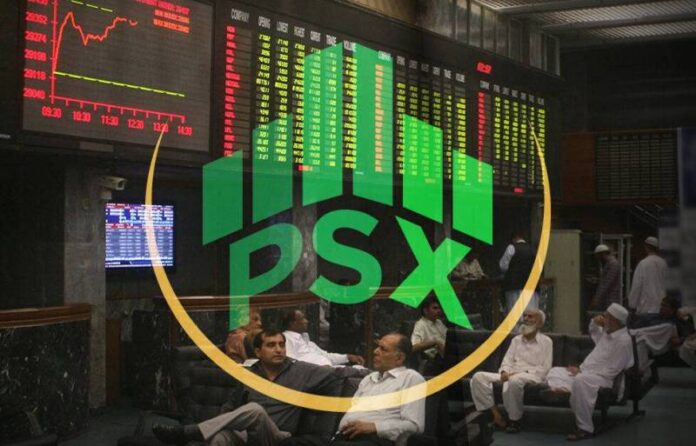Stocks extended their bullish momentum on Monday, with the KSE-100 gaining nearly 2,000 points during the intraday trading mainly due to investors’ anticipation of easing inflation figures for November.
According to the PSX website, the market opened on a positive note, maintained its bullish momentum throughout the session, and reached its peak at 103,386.46 points at 3:30 pm, marking an increase of 2,029.14 points or 1.98%.
Widespread buying was witnessed in key sectors including automobile assemblers, cement, commercial banks, fertiliser, oil and gas exploration companies, OMCs, and refineries. Index-heavy stocks, including HUBCO, PRL, SSGC, ODGC, PPL, MEBL, and NBP, traded in the green.
At the day’s end, the index settled at the 103,274.94 mark, with an increase of 1917.62 points or 1.89% from the previous close of 101,357.32 points.
The market’s bullish momentum and investor confidence were primarily driven by easing inflation for November which slowed to 4.9% year-on-year in November 2024, a significant drop from 7.2% in October.
According to data released by the Pakistan Bureau of Statistics (PBS), this marks the lowest inflation rate in 78 months.
On a month-on-month basis, the Consumer Price Index (CPI) rose by 0.5% in November, compared to an increase of 1.2% in October and 2.7% in November 2023.
The average inflation rate for the first five months of FY25 stood at 7.88%, sharply lower than the 28.62% recorded during the same period last fiscal year.
Ministry of Finance’s Monthly Economic Update and Outlook for November, Pakistan’s economy is witnessing a sustained recovery, driven by declining inflation, surging remittances, and a rebound in exports.
Analysts attribute this to easing global commodity prices, stable energy tariffs, and prudent monetary policy, with the State Bank recently cutting the policy rate by 250 basis points to 15%.
Last week, the State Bank of Pakistan (SBP) announced the removal of the Minimum Profit Rate (MPR) requirement for conventional banks on deposits from financial institutions, public sector enterprises, and public limited companies.




